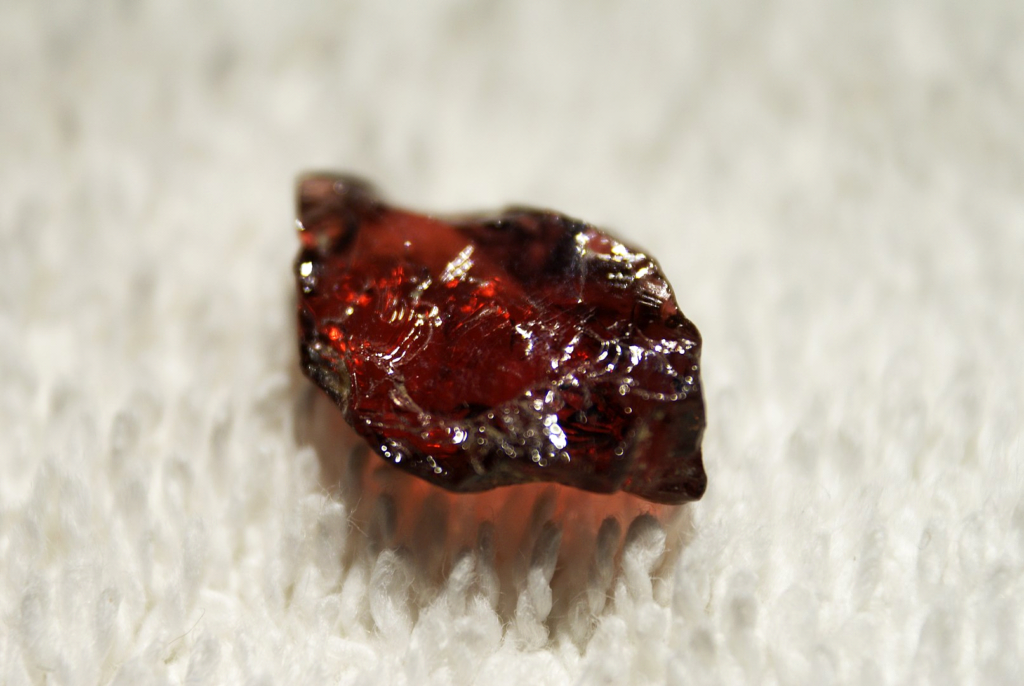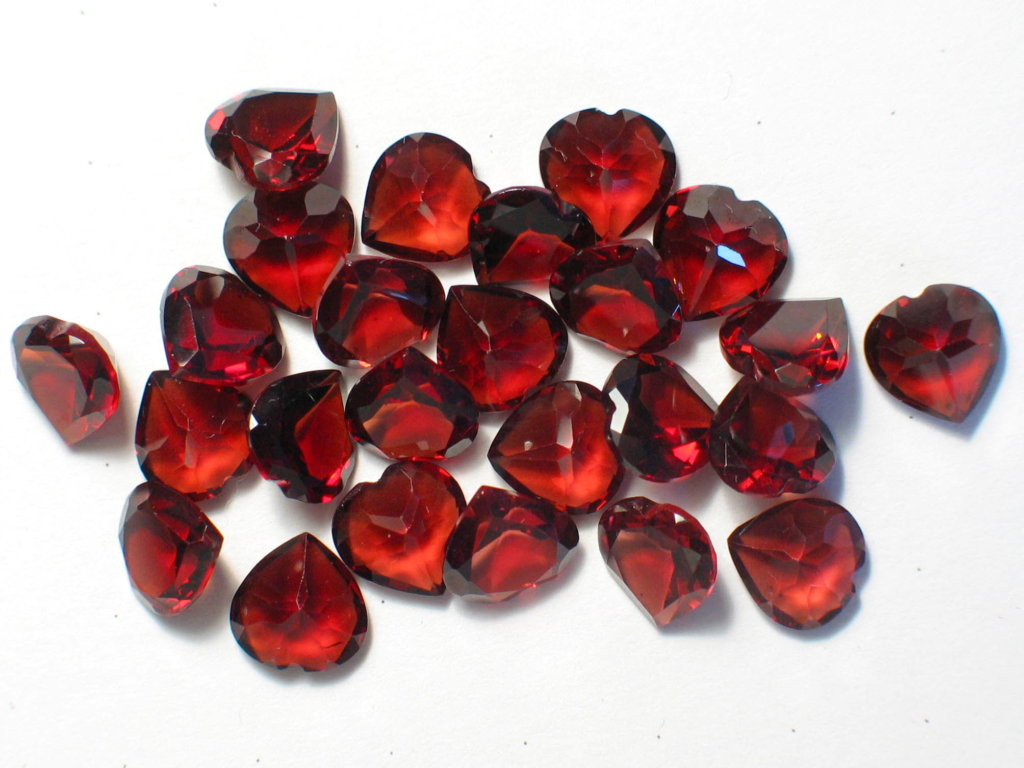Hessonite/Garnet
Hessonite, which is also known by the name “Cinnamon Stone,” is a Brownish-Orange Grossular Garnet that is one of the Nine Maharatnas (Major Gems), or Navaratna (“Divine Gems”), which is connected to the Vedic Astrological sign of Rahu, or “Head of the Dragon.” Hessonite Garnet’s Sanskrit name is Gomedhaka. Source: Kenya, Madagascar, Tanzania, Siberia, USA
The mineral Grossular is a Calcium-Aluminium variety of the Garnet group, whose name is derived from “Grossularia,” or “Gooseberry,” a fruit that closely resembles a Pale-Greenish Grossular variety from Siberia, called “Viluite”. Grossular is also known by the name “Grossularite.”
Grossularite Composition is a Calcium-Aluminium Nesosilicate with a Granular, Compact, and/or Massive Crystal growth habit, which forms Rhombic Dodecahedra or Cubic Crystals in the Isometric Crystal System. Grossular’s Calcium component may be partially replaced by Ferrous-Iron, and the Aluminium component by Ferric-Iron.
Grossular Garnet occurs in a wide variety of colours from Emerald Green, to Brown, Olive Green, Orange, Pink, and Yellow. Colour varieties of Grossular include: Californite (American Jade), Hessonite (Cinnamon Stone, Gomedhaka), Hydrogrossular, Transvaal Jade, Viluites, and the highly prized Tsavorite.


Identification
Color: virtually all colors, blue is very rare
Crystal habit: Rhombic dodecahedron or cubic
Cleavage: Indistinct
Fracture: conchoidal to uneven
Mohs scale: hardness 6.5–7.5
Luster : vitreous to resinous
Streak: White
Specific gravity: 3.1–4.3
Polish luster: vitreous to subadamantine
Optical properties: Single refractive, often anomalous, double refractive
Refractive index: 1.72–1.94
Birefringence: None
Pleochroism: None
Ultravioletfluorescence: variable
Other characteristics: variable magnetic attraction
